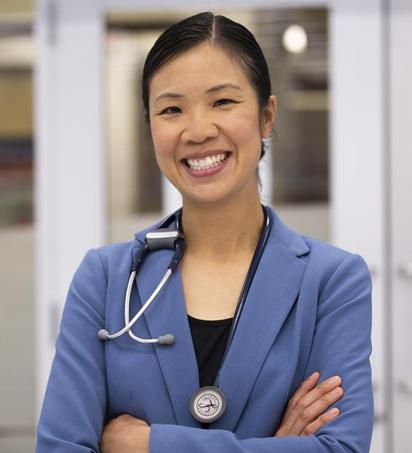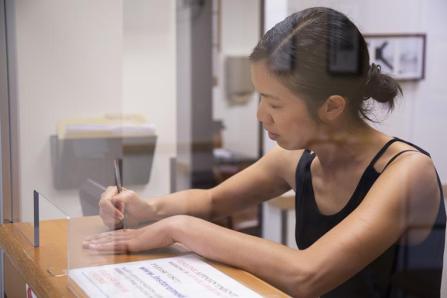- Managing your Practice
-
- Your Benefits
-

Introducing the ultimate Club MD experience
From work to play, and everything in between, we provide you with access to hundreds of deals from recognizable, best-in-class brands, elevating every facet of your life – from practice supports to entertainment, restaurants, electronics, travel, health and wellness, and more. Your Club MD membership ensures that these deals are exclusive to you, eliminating the need to search or negotiate.
Welcome to the ultimate Club MD experience. Your membership, your choices, your journey.
-
- Advocacy & Policy
-
- Collaboration
- News & Events
-

Stay Informed
Stay up to date with important information that impacts the profession and your practice. Doctors of BC provides a range of newsletters that target areas of interest to you.
Subscribe to the President's Letter
Subscribe to Newsletters
-
- About Us
-
Dr Kathy Lee - A cracked waterpipe and one physician’s journey to effect change
June 24, 2020
Doctors Making a Difference
Dr Kathy Lee remembers the exact moment when she decided to work from the inside out to improve the health care system for physicians as well as for patients.
 Eight years ago, on the morning of a scheduled surgery, a waterpipe burst at Surrey Memorial Hospital, flooding operating rooms. In a bit of downtime, Dr Lee found herself face-to-face with something that would impact the course of her career.
Eight years ago, on the morning of a scheduled surgery, a waterpipe burst at Surrey Memorial Hospital, flooding operating rooms. In a bit of downtime, Dr Lee found herself face-to-face with something that would impact the course of her career.
“I saw a call-out for new Specialist Services Committee (SSC) members for Doctors of BC,” she said. “I was frustrated, and I thought there must be something more.”
It was a watershed moment for Dr Lee, literally and figuratively.
Championing our community specialists
The goal of the SSC, a partnership of Doctors of BC and the BC Government, is to improve patient care by engaging Specialist physicians to lead quality improvement and deliver quality services. Dr Lee’s involvement with the SSC quickly evolved from committee member to leader. A surgeon with a community-based practice herself, she now chairs the SSC’s Community Specialists Working Group.
“We are looking at engaging specialists with community practices, including those without facility privileges, to determine what their needs are,” Dr Lee said.
Too often, specialists without facility privileges fall through the cracks, added Dr Lee. They work in the community, but are not family physicians who have access to supports from Divisions of Family Practice. They are not facilities-based physicians, so they do not receive the support of Medical Staff Associations.
“But they are a big player. They provide services funded by the Medical Services Plan and are contributing to the system because they’re seeing patients.”
Comprising surgeons, ophthalmologists, rheumatologists and geriatricians and others, community specialists “want to be heard,” said Dr Lee.
“Our work now is to remind health authorities and the Ministry of Health that specialists work within facilities, but they also work in the community and are actively contributing to the healthcare system. These physicians play a valuable role in the system and need to be supported.”
Moving from one-on-one patient care to changing the system from within
A strong proponent of the Canadian health care system, Dr Lee derives great satisfaction from her committee work.
strong proponent of the Canadian health care system, Dr Lee derives great satisfaction from her committee work.
But that wasn’t always the case. It took her late husband, a public accountant, to show her the importance of meetings, financial statements, budgets and spreadsheets. “As a surgeon sitting in my first meetings, I thought, ‘What is all this talking?’ but over the years – and I do mean years because it takes that long to learn all the acronyms and relationships - you see that the work has big impacts.”
One of the most memorable impacts for Dr Lee involved the introduction of a fee code for phone consults with patients. Prior to its existence, physicians could bill only for in-office visits. Its implementation also meant patients no longer had to take time away from work to attend a doctor’s appointment.
“I learned that instead of making changes one-by-one for patients, I could make significant changes, benefiting the overall health care system.”
Importance of hospital culture - building relationships between physicians and administrators
Projecting forward from COVID-19, Dr Lee believes the pandemic has shone a light on the ongoing need to address hospital culture and the complex relationship between physicians and administrators. This is work that — prior to SSC involvement — she’d not considered within her purview as a physician.
Today, however, Dr Lee has bridged that divide. Not only is she a well-respected surgeon, but also a health care leader whose knowledge extends beyond the day-to-day practice of medicine into the programs, planning, players, and politics in the provincial health care system.
“These are things that aren’t taught in medical school,” she said. “Instead of managing my own waitlists, negotiating for more OR time, I get to be on the other side where you get to initiate changes across the system. It’s a powerful thing.”




